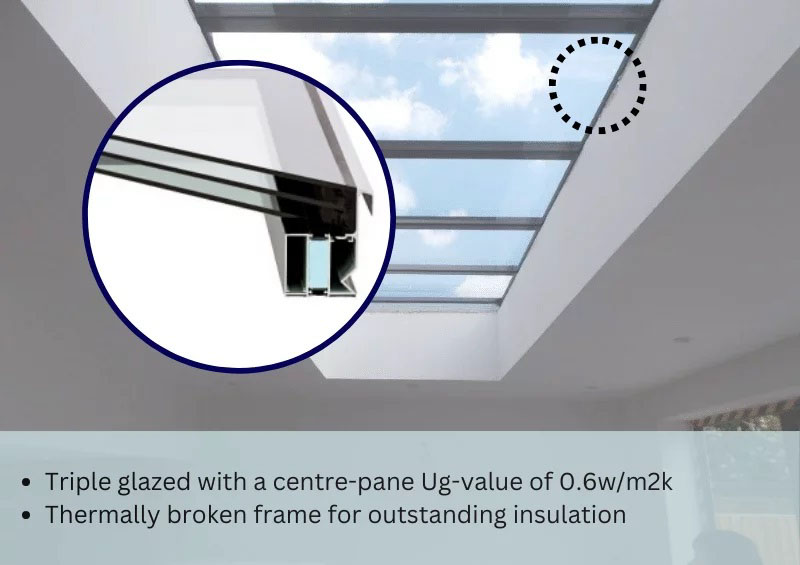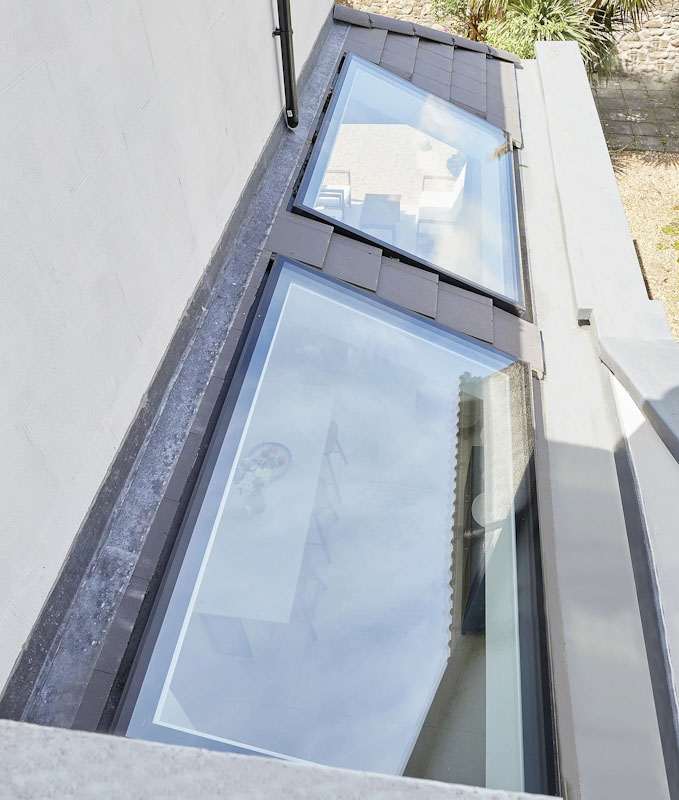In this article, we’ll explore the advantages of triple glazed rooflights over their double glazed counterparts, emphasiszing the significant benefits they offer.
What is Double Glazing?
Double glazing consists of two panes of glass separated by a gas-filled space to reduce heat loss and improve insulation. While it’s a step up from single glazing in terms of energy efficiency, double glazing has its limitations, especially when compared to the more advanced triple glazing technology.
What is Triple Glazing?
Triple glazing adds an extra pane of glass, resulting in two gas-filled spaces, offering significantly improved insulation. This is especially crucial for rooflights because heat naturally rises.
A well-insulated roof window plays a pivotal role in maintaining a building’s thermal efficiency
Insulation and Energy Efficiency
The effectiveness of glazing is measured in Ug values, which indicate how well a window prevents heat from escaping. The lower the Ug value, the better the insulation. Our triple glazed fixed flat rooflight with our standard energy glass boasts a Ug value of just 0.62 W/m²K, compared to the 1.19 W/m²K of our double glazed model.
This significant difference highlights the superior energy efficiency of triple glazing, potentially halving the heat loss compared to double glazing.
Cost Considerations
While triple glazing may have a slightly higher upfront cost than double glazing, it offers considerable long-term savings. The improved insulation means lower heating bills and a more consistent indoor temperature, leading to cost savings over time and helping you to reduce your carbon footprint.


Comfort and Living Environment
Triple glazed rooflights not only enhance thermal efficiency but also contribute to a more comfortable living environment. They are effective in reducing noise pollution and, with the addition of Solar glass, can prevent the greenhouse effect within your home, ensuring a peaceful and comfortable indoor space.
Why Triple Glazing is a Superior Choice
Triple glazed rooflights are a clear winner in terms of energy efficiency, cost-effectiveness, and comfort. Whether you are building a new space or upgrading your existing space, choosing triple glazing for your rooflights is an investment in both the present comfort and future sustainability of your home.
